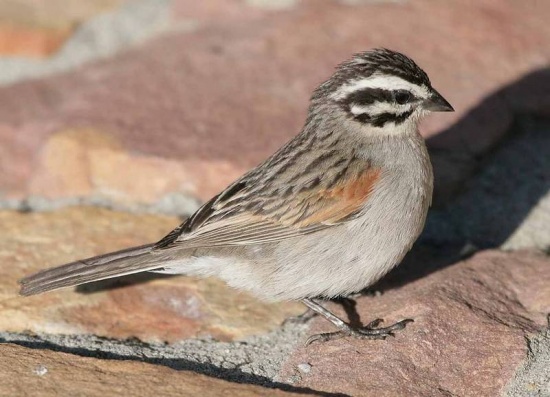- Emberiza capensis
Other Names
Deutsch: Kapammer; Afrikaans: Rooivlerkstreepkoppie
Description
The Cape Bunting is 16cm long. The adult has a black crown, white supercilium and black-bordered white ear coverts. The upperparts are grey brown with some dark streaks, and the wing coverts are chestnut. The tail is darker chestnut, and the underparts are grey with a pale throat. The sexes are very similar, but females may have a buff tone to the white head markings. Young birds have duller chestnut wings, a less distinct head pattern, and heavier streaking extending on to the breast and flanks.
Habitat
The Cape Bunting is not gregarious, and is normally seen alone, in pairs or family groups. Its habitat is rocky slopes and dry weedy scrub, mainly in mountains in the north of its range.
Diet
It feeds on the ground on seeds, insects and spiders.
Reproduction
Its lined cup nest is built low in a shrub or tussock. The 2-4 eggs are cream and marked with red-brown and lilac.




